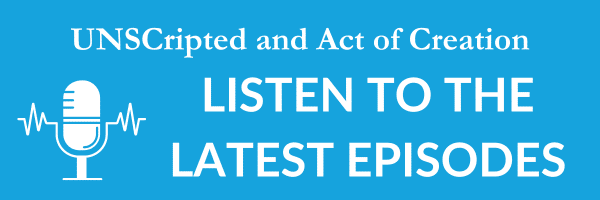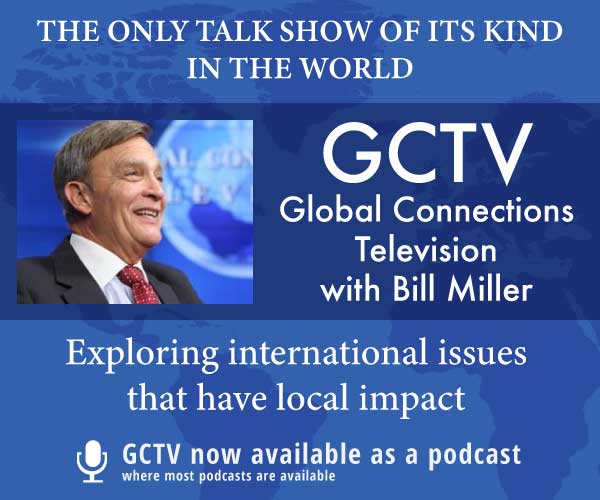
It is a cliché, but true, to say the United Nations is needed more — and under more duress — than ever. Overstretched and constrained, it has struggled to keep up with the scale and challenges facing humanity, from the climate emergency to the global cost-of-living crisis, from geopolitical fractures to pandemics. Small wonder that the past five years have seen a proliferation in reports, consultations and efforts aimed at reforming the organization. Even less surprising is the modest progress they have yielded.
The latest contribution, “A Breakthrough for People and Planet,” was delivered recently by the UN high-level advisory board on effective multilateralism. It proposes six “transformational shifts” and 26 recommendations for consideration before the Summit of the Future planned for fall 2024. Bold and imaginative in parts, circumspect in others, the report reflects an enduring dilemma of the UN: progress tempered by politics.
But it offers an opportunity for change. Those who wish to seize it must understand the context of the dilemma, and a good starting point is the newly released third edition of “International Organizations and Global Governance.” Edited by international relations heavyweights Thomas G. Weiss and Rorden Wilkinson, the book covers the history and theories of global governance, contemporary challenges and the role of the various state, intergovernmental and nonstate actors. The chapter we wrote focuses on the UN system. The points below provide background from the chapter that may help would-be reformers ascertain not just what is possible, but also how the impossible could be achieved.
First, the UN is not a monolith. It has grown into a complex, extensive system of more than 50 entities that seek to cover every aspect of human life. In each entity, “three UNs” interact: member states, international civil servants and a diverse range of other parties, including business, civil society and local authorities. They all play a role in areas traditionally confined to governments.
Reform efforts often overlook the interplay among different entities and groups, as experts tend to focus on the parts of the UN system most relevant to their priorities. For instance, they focus narrowly on the Security Council, one of the hardest bodies to change, ignoring other mechanisms mandated to address crises — such as the Peacebuilding Commission and the General Assembly.
Second, the UN was not an idealistic venture created in the aftermath of World War II. It began life in 1942 as a wartime alliance — as much as a tactic of conflict as an organizing principle for the post-war order. It has always been an organization of political realities and compromise, with the principle of privilege for the powerful at its core. This is most obvious, and detrimental, in the Security Council, where the war’s five winning powers have permanent seats with veto powers and therefore the ability to stymie action on critical issues, such as the prevention of atrocities.
Third, the UN was not imposed by the West on “the rest.” This dynamic is particularly important to recognize as Russian aggression against Ukraine is fueling a narrative of geopolitical fracture. While only 13 African and Asian countries were present when the UN Charter was finalized, they played a pivotal role in crafting Chapters 11 and 12 on non-self-governing territories and trusteeship. Latin American states, meanwhile, supported the development of Chapter 8 on regional arrangements and advocated for including human rights and gender equality.
After decolonization, the expanded UN membership resulted in a significant shift toward development, which now accounts for 70 percent of the system’s funding ($42.2 billion in development, including $24.7 for humanitarian activities) and roughly two-thirds of its 109,000 staff.
Fourth, change is possible. In fact, it has been a constant feature of the UN. Take peacekeeping, for instance. One of the organization’s most emblematic activities, it does not feature in the UN Charter. Neither do the plethora of mechanisms dedicated to environmental issues.
The UN’s adaptability has enabled it to endure repeated divisions among its members as well as the emergence of other multilateral forums. Rather than indulging in endless debates about its relevance, reformers should explore how to make best use of its various forums while also supporting flexible and dynamic mechanisms outside the UN.
Fifth, the UN’s current frameworks are ill suited to addressing geopolitical theaters such as cyberspace and social media, while its structures are too rigid to support nimble, multiparty responses to these challenges. Indeed, the responses are increasingly hampered by widespread perceptions of an anachronistic organization as power has shifted not only East and South but also vertically — local and regional levels and to the myriad actors that now inhabit the UN’s orbit.
Amid an increasingly long and complex to-do list, greater political divisions and fewer resources, the UN must focus on the areas where it can add most value. This includes its ability to provide foresight, information and technical advice, as well as its functions as a normative and legal leader, coordinator of global action and geopolitical stage. Today, almost every challenge we all face has a global dimension and requires combinations of the above. The UN, both flawed and indispensable, will continue to be relevant.
This is an opinion essay.
We welcome your comments on this article. What are your thoughts on how the UN can achieve the impossible?
Natalie Samarasinghe is the global director of advocacy for the Open Society Foundations. Previously, she was the executive director of the United Nations Association-UK, the first woman to have this role, and a co-founder of the 1 for 7 Billion campaign. She has degrees in human rights and modern history from Oxford University and the London School of Economics.
Giovanna Kuele is a Ph.D. candidate at the Graduate Center of the City University of New York and a policy adviser at the Rio-based Igarapé Institute.














Good day, PassBlue, Natalie Samarasinghe and all.
The co-facilitators of the preparations for the Summit Of The Future, Representatives of Germany and Namibia, have been forthright and stated that the recommendations made so far have not been convincing as regards the achievement of the sustainable development goals.
This is what exactly I am capable and willing to do for the United Nations Organisation. Despite the dearth of finance, complexity of the interdependent, interconnected and intersecting sustainable development goals, and sovereignty of member states, there are innovations which, if I am adequately supported, I will immediately and comprehensively document in the form of many books, which shall enunciate the veritable solutions to the global catastrophic challenges, the progressive and speedy achievement of the sustainable development goals.
Please do let me have the email address of Natalie Samarasinghe, Maia Groff, Arthur Dahl and Augusto Lopez-Claros.
Please do let the Secretary General be urgently aware of this my comment and offer. Thanks.
Ponle Sueez Akande
Email -akandeponle01@gmail.com
Tell +2347043321950
Ibadan, Nigeria
The fundamental problem of the United Nations lies in its limitation as an exclusively intergovernmental organisation based on its own definition of “nations” for formal membership. More inclusive participation ought to open it from parochial multi- towards all-stakeholder-based OMNI-lateralism. It could learn from the experiences of regional integration and supranationality like in the EU.
A thoughtful overview of the strengths and weaknesses of the UN and prospects for reform. My only quibble is with the assertion that the Charter is not a Western document. In the aftermath of WWII, the US exercised unparalleled power. Therefore, its objectives and preferences shaped the document. Other WWII victors had no comparable influence, nor did others outside that small group.